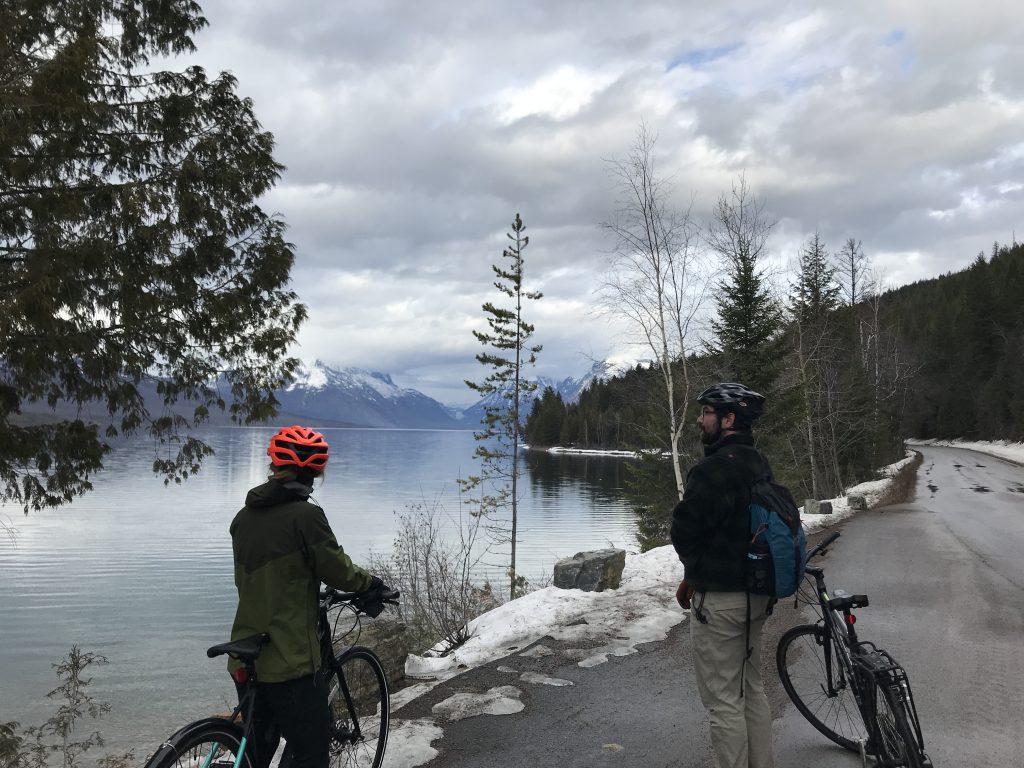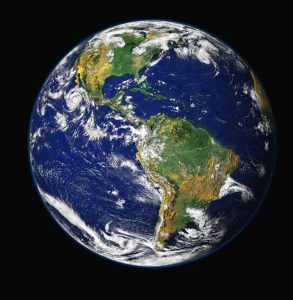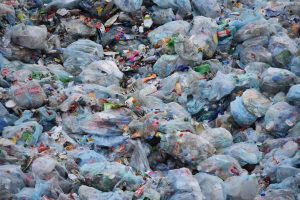By Sian Beck
I’ve been doing a lot of thinking about the illusion of control recently and the way our structures are built to make us think we matter. Which we don’t. Before you call me out for being cynical, hear me out.
I took a few days off in March to go on a little vacation to Point Reyes National Seashore on the coast of California. Serving in a national park has completely changed the way I think about the National Park Service and our public lands. I’m constantly thinking about the impact I’m making on the ecosystem and the mindset many people have surrounding these national treasures. Here at Glacier, the majority of our emissions come from transportation (83% from our most recent GHG study, which was completed in 2004) and the large majority of those emissions come from visitors, not even taking into account the emissions it takes to get here. People fly internationally to see these glaciers while they’re still around, in turn emitting massive amounts of greenhouse gas emissions. It’s ironic to say the least. I’m not saying people shouldn’t visit. There’s certainly something to be said for connecting with the land, but in the peak months it becomes a drive-through museum.
One day at Point Reyes during low tide, my friends and I went tide pooling. The shore was littered with hermit crabs crawling around in the concave dwellings of the rocks. We watched them, busy in their ecosystem, crawling on and around each other eating algae. Walking on top of these rocks, with tiny creatures all around, made me think I could be killing some with every step. My friend and I agreed that there may be some problematic pieces of tide pooling, but it certainly wasn’t the worst of humanity. We spent some hours wondering around and observing the marine life. When we were walking back trying to avoid the hermit crabs, my friend said “I’m not worried for the hermit crab population” and I asked if they were worried about the hermit crab individuals.
It struck me how different these two concepts are and how different working with systems and with individuals is, though they are never mutually exclusive. Environmental work tends to be with the system. It’s a large scale problem. Climate change is not the product of that one time you let your car idle in the drive-through, but the system of transportation we have built where every car sits in traffic for hours on the way home from work. We have built inefficient systems – systems that we cannot impact by changing one small practice in our lives – and we continue to build them.
I stayed up late one night talking to my friend about these largely inefficient systems and how we, as environmentalists and people who care, can’t lose hope. It’s the same concept as elections. If each of us acknowledge the insignificance of our single vote, there is no hope for change. But collectively, we are more. And we are privileged to have the opportunities to work on transforming these systems. The key ingredient is hope.
Back at the national park that I get to call home, things are livening up. We had our first seasonal orientation last Monday (where I’ve acquired some time to talk about sustainability) and my office will be welcoming in new faces next week. The Going to the Sun Road is being plowed and we’re quickly approaching 20 miles of road open to hiker/biker. You can hear the birds singing at all hours, with new songs every day, and the ground squirrels are out. We even have a neighborhood fox! More and more daylight after work every day means plenty of time for biking and birding and, to no surprise, “I can’t complain” has become an everyday phrase.
Spring has long been my favorite season. It holds a hopeful anticipation and an energy I can feel everywhere around me, especially this year as it contrasts with the beginning of my term of service. I’m preparing for presentations to seasonal employees and the public, a new recycling project for energy bar wrappers through Terracycle, and can see the light at the end of the tunnel that is Glacier’s Sustainability Plan. I wouldn’t feel this sense of hope if I didn’t take the time to be outside. So celebrate this Earth Week as you should every week, and go for a walk, or a bike ride, or simply sit outside, and remember that you don’t need to go far to find nature.








